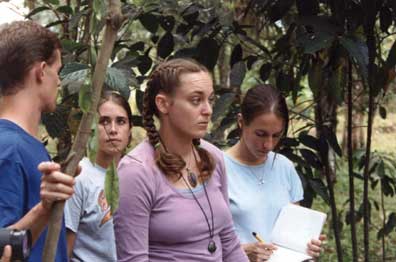
Against the Series: Isolated incidents aren't fair representation By Dominican Republic RPCV Elizabeth Yehaskel
Isolated incidents aren't fair representation
Most volunteers don't encounter violence
By Elizabeth Gorman Yehaskel
I am disturbed by the Dayton Daily News series on safety in the Peace Corps. As a former volunteer who served in the Dominican Republic from 1996 to 1998, I would like to clarify some points.
I respect the stories from volunteers that reporter Russell Carollo chose to focus on. However, I find those isolated accounts an unfair representation. Using only a few examples of violence and making it appear that these situations are typical for the 170,000 volunteers who have served is hardly accurate reporting.
Though it would suit Carollo’s purposes better if more of us had stories of violence and assault, most volunteers never deal with such incidents.
Carollo’s decision to misrepresent facts is equally disturbing. One such example is his description of a village in El Salvador where a volunteer lived. He describes how "men — young and old — walk with machetes in their hands or strapped to their waist." Carollo conjures images of anarchy with men wielding big knives threateningly. What he fails to mention is that these men and boys are farmers. They carry their machetes as engineers carry their laptops — they are tools of their trade.
As an agriculture volunteer, I had a machete strapped to my waist every day as well. Carollo deliberately denies his readers these important details.
A blatant lie Carollo presents is that the Peace Corps disguises the dangers and risks of being a volunteer. The fact that the general public may be uninformed about the realities of Peace Corps service does not mean that volunteers are unaware of the facts, as Carollo implies.
The Peace Corps states plainly on its Web site that "health and safety risks are an inherent part of volunteer service."
Volunteers are well-educated adults who understand that the developing world, by definition, is going to be poor, dirty, dangerous and corrupt. Volunteers receive a great deal of information from the Peace Corps both during the application process and upon acceptance.
The Peace Corps also thoroughly screens applicants and strives to accept individuals who can handle difficult circumstances. Potential volunteers also have the chance to drop out of the nearly yearlong application process.
From October 2002 through September 2003 there were 19,569 applications, but the Peace Corps typically places 3,000 to 3,500 volunteers annually.
Carollo implies that the Peace Corps covers up safety concerns so as not to discourage recruits — yet with more than 16,000 more applicants than the agency can handle, his conclusion makes no sense.
An important fact Carollo fails to mention is that the Peace Corps sent a survey to all Peace Corps volunteers in 2002 on safety issues. Ninety-seven percent of respondents reported that they feel "very safe" to "adequately safe" where they live and work; a great majority felt safe traveling. This information calls Carollo’s conclusions into question.
Carollo is able to twist his story by blaming bad judgment by some volunteers on the Peace Corps. During the three months of intense daily training, the Peace Corps covers sexual harassment, safety, illness, and many other issues in detail, including specific incidents in that country. Yet, at times, some volunteers ignore Peace Corps guidelines; some have suffered consequences for their decisions.
Carollo blames the Peace Corps for this, rather than the volunteers who knowingly took risks they were warned about. It’s like blaming fast-food chains for making you fat.
In the Peace Corps’ 42-year history, there have been only 20 homicides among more than 170,000 volunteers. Considering homicide rates in the United States, those numbers are pretty impressive.
Carollo has a right to his opinion, but I'm disappointed that a Pulitzer Prize-winning reporter would choose to ignore so much truth in pursuit of a sensationalist series.
The Peace Corps has been, and should always be, working to improve safety: Since 1997, major sexual assaults are down by 30 percent and rapes decreased by 40 percent. Likewise, in 2002, the Peace Corps experienced a 27 percent decline in major sexual assaults over 2001 and an 18 percent decrease in rapes during the same timeframe.
The scandal that Carollo wants readers to believe he has exposed simply doesn’t seem to exist.
Elizabeth Gorman Yehaskel is a freelance writer and marketing consultant living in Austin.
[From the Dayton Daily News: 11.02.2003]
